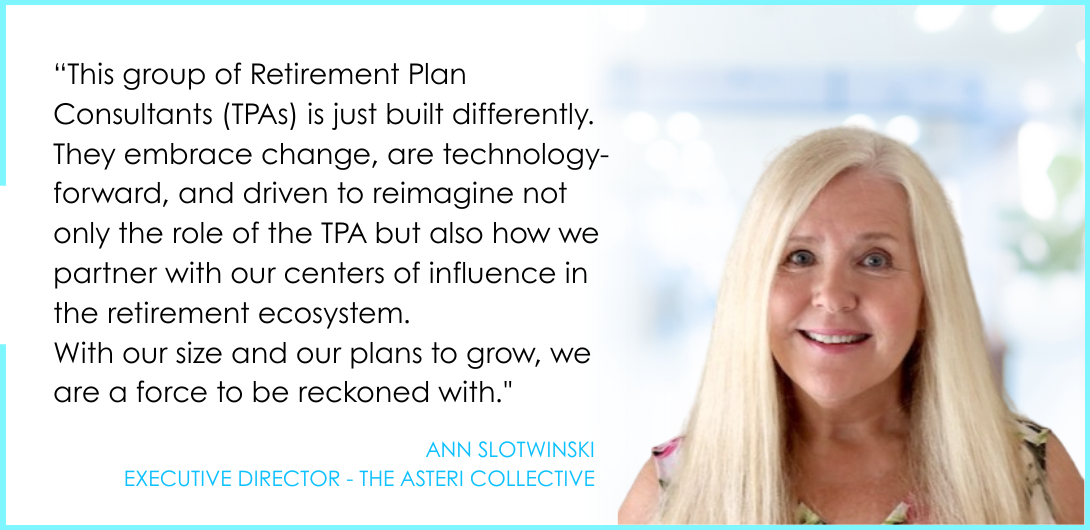TPA vs Retirement Plan Consultant: What’s the Difference?
In the retirement industry, the term TPA, short for Third Party Administrator, gets tossed around a lot. It’s the industry standard. But for those of us who live and breathe plan design, compliance, and strategy, the title doesn’t go far enough.
Yes, TPAs are third-party administrators. But what they actually do, when done well, is far more than administration. That’s why many professionals within the Asteri Collective prefer the term Retirement Plan Consultant. And here’s why you should, too.
What Does “Third Party Administrator” Actually Mean?
To understand the term, let’s go back to its source: the Plan Administrator.
Under ERISA, the Plan Administrator is legally the employer, not the recordkeeper, not the advisor, not the TPA. The employer is ultimately responsible for ensuring that the retirement plan is designed, maintained, and operated in accordance with federal law.
But here’s the reality: most employers don’t have the time, resources, or technical knowledge to fulfill that role alone. So, they outsource. They hire a third party to assist in meeting those legal responsibilities. Enter the TPA.
This third party handles:
- Plan design and documentation
- Compliance testing and monitoring
- Filing Form 5500s
- Participant notices and disclosures
- Coordinating with advisors, recordkeepers, and payroll providers
And while that may sound administrative, it’s anything but simple.
The Stakes Are High, and So Is the Complexity
Retirement plans are serious business. You’re withholding employees’ money and promising to steward it until they retire. Get it wrong, and you risk penalties, audits, plan disqualification, or worse, a loss of trust with your workforce.
It’s not just paperwork. It’s strategy.
A Retirement Plan Consultant understands the nuanced goals of each stakeholder:
- Business owners want to maximize contributions and reduce tax liability
- Employees want simple, understandable benefits that help them retire
- Advisors need plans that support their investment strategies
- Recordkeepers want clean, compliant, well-run plans on their platforms
The Retirement Plan Consultant has to sit in the middle of all of it, translating regulations, structuring plans, and solving problems that don’t have one-size-fits-all answers.
It’s More Than Administration, It’s Consulting
While “TPA” has become shorthand in the industry, it falls short in describing the weight of the role. A true Retirement Plan Consultant doesn’t just check boxes, they:
- Design plans that evolve with the business
- Strategically align contribution strategies with long-term tax planning
- Understand how ownership structures affect plan eligibility and testing
Coordinate with CPAs, attorneys, and wealth advisors - Navigate mergers, acquisitions, and business transitions
- Spot risks before they become liabilities
This isn’t clerical. It’s consultative.
Why the Asteri Collective Embraces “Retirement Plan Consultant”
The members of the Asteri Collective are seasoned professionals who know that words matter. While we’ll still show up in search results for “TPA,” we want to set a higher bar for what our role represents.
We are partners in plan strategy, protectors of compliance, and advocates for both employers and employees. We bring decades of technical expertise, deep coordination with investment and tax professionals, and a commitment to helping retirement plans work, not just run.
What’s in a name?
The industry might still call the role of the retirement plan consultant a TPA. But if you’re working with someone who’s doing the job right, who’s designing your plan with intention, keeping you compliant, and building something that works for everyone, you’re working with a Retirement Plan Consultant.
And that difference? It’s more than semantics. It’s everything.





